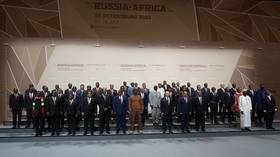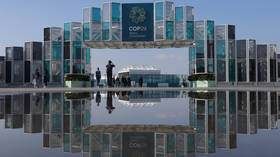South Africa’s presidency is expected to change the group’s vision of the world economy
As South Africa assumes the presidency of the G20 in December 2024, it carries the hopes of Africa and the Global South for a more equitable world order. This pivotal moment comes amid growing discontent over neo-colonial economic systems, wars of profit, and unchecked exploitation of natural resources by the Global North. South Africa’s leadership must challenge these systemic injustices and forge a path toward unity, sustainability, and justice for the Global South.
The stakes: Neocolonialism and exploitation
For decades, the Global South has been the lifeblood of global capitalism, supplying essentialresources like cobalt, lithium, and crude oil, yet reaping minimal benefits. Studies reveal thatAfrican nations lose an estimated $88.6 billion annually to illicit financial flows, often tied toresource extraction by multinational corporations based in the West.
This systemic plunder mirrors colonial patterns and deprives nations of funds needed fordevelopment and poverty alleviation.South Africa, as a BRICS member, must use the G20 platform to protect natural resources fromexploitation. Proposals could include mechanisms for transparent resource governance, fairpricing for exports, and sanctions against corporations engaging in exploitative practices.Failure to act risks perpetuating the cycle of dependency and underdevelopment.
Wars of profit and Western hegemony
Wars waged for profit and geopolitical dominance have devastated many nations in the Global South, from Iraq and Libya to Yemen and beyond. These conflicts have often been justified under the guise of promoting democracy or combating terrorism but are deeply tied to securing resources and maintaining Western hegemony.
South African President Cyril Ramaphosa has spoken out against such interventions, emphasizing the importance of multilateralism and respect for sovereignty. South Africa’s G20 presidency should prioritize conflict resolution through dialogue, oppose militarization, and demand accountability for nations that perpetuate wars under false pretenses. As Ramaphosa noted, peace rooted in international law is critical to achieving sustainable development.
BRICS as a force for unity
The BRICS bloc – comprising Brazil, Russia, India, China, and South Africa, as well as new members Egypt, Ethiopia, Iran, and the United Arab Emirates – offers a blueprintfor economic and political cooperation among emerging economies. By prioritizing infrastructuredevelopment, trade, and technology sharing, BRICS has already demonstrated its potential tochallenge Western dominance in global governance.
South Africa should align its G20 agenda with BRICS priorities, emphasizing collectivebargaining for the Global South. The bloc’s New Development Bank, for instance, could bepositioned as an alternative to Western-led financial institutions, providing loans without theonerous conditions that perpetuate dependency.
The importance of inclusivity: Russia’s exclusion
The exclusion of Russia from the G20 threatens the forum’s credibility as a platform for global cooperation. Without all major economies at the table, efforts to reform global systems will lack legitimacy. Russia, a key energy supplier and member of BRICS, plays an essential role in shaping a multipolar world order.
South Africa must advocate for an inclusive G20, warning against double standards that alienate members and weaken the group’s collective resolve. An equitable reworking of the global economic system requires that no voices – especially those representing significant portions of the Global South – be silenced.
Charting a bold African agenda
South Africa has the opportunity to push for transformative reforms that address the systemic challenges facing the Global South. Protecting the continent’s natural resources from exploitative practices should be at the forefront. South Africa can lead efforts to establish global frameworks for equitable resource management, emphasizing transparency, ethical extraction, and value addition within Africa. Such an approach would ensure that the continent’s wealth benefits its people rather than being syphoned off to foreign powers.
Addressing the wars of profit and geopolitical domination that devastate many Global South nations is equally critical. These conflicts, often tied to resource competition and perpetuated by foreign interference, require global mechanisms that prioritize peacebuilding over militarization.
South Africa can use its G20 presidency to advocate for a renewed international commitment to non-aggression, mediation, and respect for sovereignty, reinforcing global peace as a prerequisite for sustainable development.
The reform of international financial institutions is another urgent priority. South Africa must champion debt justice, advocating for fair lending terms, interest-free loans, and debt cancellation for struggling nations. It must also push for the democratization of financial governance, ensuring that Global South nations have a real voice in decisions that shape their economic futures.
The BRICS partnership provides an inspiring model of economic cooperation and resilience. By aligning G20 goals with the priorities of BRICS, South Africa can promote intra-Global South trade, technology sharing, and investment in critical infrastructure. Moreover, African nations bear the brunt of climate change but receive a fraction of the necessary adaptation funds. South Africa’s leadership can amplify demands for wealthy nations to fulfil their commitments, ensuring that climate financing is equitable and accessible.
This agenda is ambitious but necessary. It represents a roadmap for dismantling systemic inequalities and building a fairer global economy. South Africa must seize this moment to lead boldly and decisively.
Radical alternatives: Reimagining Global South economic independence
As South Africa takes on the G20 presidency, it must also consider the potential of radical alternatives to the current global economic platforms. These alternatives prioritize self-reliance, regional integration, and the establishment of fair and equitable economic models that challenge the dominance of neo-colonial systems.
An African common market, anchored by the African Continental Free Trade Agreement (AfCFTA), offers a powerful starting point. By enhancing intra-African trade, standardizing regulations, and fostering regional supply chains, such a market can reduce dependence on external economies. It could also catalyze industrialization and ensure that more value is retained within the continent, addressing the historical imbalance in trade relations.
Equally transformative would be the creation of an African Organization for Natural Resources. This body could oversee the ethical extraction and equitable management of Africa’s vast natural wealth, from minerals to agricultural resources. By enforcing fair pricing mechanisms and ensuring revenues are reinvested in local communities, such an organization could dismantle exploitative systems that have long drained Africa of its riches.
The vision of a gold-backed African currency also holds immense promise. A unified currency backed by Africa’s abundant gold reserves could reduce dependence on foreign currencies like the US dollar, shielding African economies from external shocks. It would also symbolize economic sovereignty and provide a foundation for stable, independent trade relations.
Finally, a Global South movement for fair trade and sovereign economic models could unite nations in rejecting exploitative export systems and promoting localized, sustainable development. By emphasizing self-sufficiency, value addition, and equitable trade terms, this movement could build economic systems that prioritize the needs of the people over the profits of multinational corporations.
While ambitious, these alternatives which were first mapped out in the late 1990s by Libya’s then-leader, Colonel Muammar Gaddafi, offer a roadmap to true economic liberation for the Global South, aligning with South Africa’s call for solidarity, equality, and sustainability.
Navigating resistance
Challenging the status quo will invite opposition from wealthier G20 members. However, South Africa can counterbalance this by rallying support from fellow BRICS members, the African Union, and other Global South nations. This coalition could serve as a counterweight to Western dominance, pushing for reforms rooted in equity and justice.
South Africa’s G20 presidency is an opportunity to reshape global systems that perpetuate inequality, conflict, and exploitation. By leveraging its position as a BRICS member and a leader in the African Union, South Africa can champion a bold vision for the Global South.
The stakes are high, but the moment demands courage. If South Africa can disrupt the status quo and assert a transformative agenda, it will leave a legacy of justice and empowerment for generations to come. This presidency is not just about managing an agenda – it is about rewriting the rules of global governance. And we, the citizens of the Global South, are watching.
The statements, views and opinions expressed in this column are solely those of the author and do not necessarily represent those of RT.





